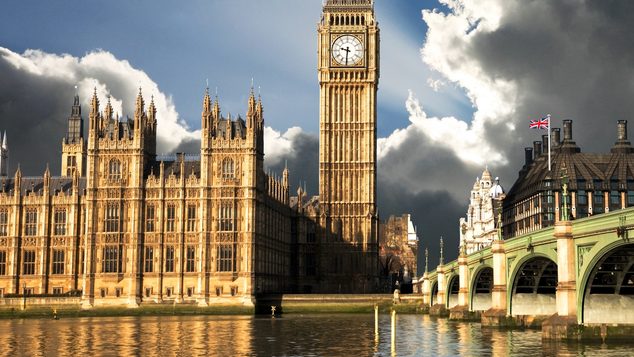On May 3, Argentina carried out its second surprise interest-rate hike in less than a week, and added 300 basis points to base rates, taking the 7-day repo rate to 33.25%. The action was taken in an attempt to halt the slide in the Argentinian peso, which had fallen nearly 6% over the previous week in the face of a strong U.S. dollar. The rate rise didn’t have the desired effect, but the central bank clearly believes “if at first you don’t succeed, try, try again”, and so on May 4 it hiked rates once more – this time to 40%. There was a temporary halt in the depreciation of the peso, but the currency sell-off later resumed and the government has been in negotiations with the IMF to secure a potential $30bn of extra funding.
Argentina is particularly vulnerable, owing to the government having issued large volumes of U.S. dollar-denominated debt in recent years after sentiment improved following the ousting of the Christina Kirchner administration and the election of President Mauricio Macri. As a consequence of being locked out of financial markets since its 2001 default, Argentina has fallen behind its Latin American peers in developing its own domestic bond markets. Furthermore, with inflation in the mid-20% range – around double the 12% (later revised upwards to 15%) that the government was targeting for the end of 2018 – it is difficult to entice foreign investors into the local market. This results in U.S.-dollar issuance remaining the country’s best chance of securing necessary funding.
Punitive but Necessary?
Hiking the base rate to 40% is punitive, but appeared to be the only real option available. The government does not have enough foreign-exchange reserves to defend the peso by buying large volumes of the currency (and selling large volumes of U.S. dollars on the other side of the trade). Even if the level of foreign-exchange reserves were a multiple of the $56bn that the government currently has, it is doubtful that it could achieve the desired effect through intervention alone.
Over the course of 2014, the Russian government burned through around $150bn in similar operations without significantly improving market sentiment. A weak rouble was causing inflationary pass-through – imported goods are relatively more expensive as the domestic currency weakens and thus add to inflation – which the Russian government was keen to avoid. Yet despite this action the rouble declined precipitously in the second half of 2014, and we think it is unlikely that Argentina would achieve a dissimilar outcome using this strategy.
Capital controls could have been reintroduced, but that would have represented a reversal of a policy which was a cornerstone of the Macri electoral campaign. It would also have halted the flow of much needed foreign direct investment, which Argentina requires to offset a current-account deficit, as well as to boost the productivity of an inflexible workforce and close infrastructure gaps.
If the market begins to price in the view that Macri isn’t going to be re-elected, debt due beyond the next election seems likely to be particularly vulnerable; of the slew of issuance over the last few years, only the 2019 bonds are due to mature within his first term. The Macri administration has had to tread more softly than it would have liked, and has been wary of implementing reforms too rapidly. Weaning people off subsidies and state assistance is unpopular, but necessary we believe for fiscal consolidation and allowing a more efficient government. As the taming of inflation, which remains stubbornly high, is the number one priority of the current administration, further inflationary pass-through from a weaker currency would be extremely undesirable. A 40% base rate therefore reflects the prioritization of inflation-targeting over boosting short-term domestic growth, as debt-service costs rise and credit demand is curtailed.
Investment Implications
Our thoughts are that the country’s bonds are likely to be vulnerable to further bouts of weakness, and spreads could head towards pre-Macri levels. However, the current Macri administration has done some of the heavy lifting that the Kirchner administration would never have attempted. There has been successful fiscal consolidation with a removal of fuel and utilities subsidies, and also a real effort at streamlining an extremely moribund civil service.
Clearly this is a highly dynamic situation, but we think future developments may reveal valuations that offer suitable opportunities.
This is a financial promotion. Material in this publication is for general information only. The opinions expressed in this document are those of Newton and should not be construed as investment advice or recommendations for any purchase or sale of any specific security or commodity. Certain information contained herein is based on outside sources believed to be reliable, but its accuracy is not guaranteed. You should consult your advisor to determine whether any particular investment strategy is appropriate. This material is for institutional investors only. Any reference to a specific security, country or sector should not be construed as a recommendation to buy or sell this security, country or sector. Please note that strategy holdings and positioning are subject to change without notice. Compared to more established economies, the value of investments in emerging markets may be subject to greater volatility, owing to differences in generally accepted accounting principles or from economic, political instability or less developed market practices.
Important information
This is a financial promotion. Issued by Newton Investment Management Limited, The Bank of New York Mellon Centre, 160 Queen Victoria Street, London, EC4V 4LA. Newton Investment Management Limited is authorized and regulated by the Financial Conduct Authority, 12 Endeavour Square, London, E20 1JN and is a subsidiary of The Bank of New York Mellon Corporation. 'Newton' and/or 'Newton Investment Management' brand refers to Newton Investment Management Limited. Newton is registered in England No. 01371973. VAT registration number GB: 577 7181 95. Newton is registered with the SEC as an investment adviser under the Investment Advisers Act of 1940. Newton's investment business is described in Form ADV, Part 1 and 2, which can be obtained from the SEC.gov website or obtained upon request. Material in this publication is for general information only. The opinions expressed in this document are those of Newton and should not be construed as investment advice or recommendations for any purchase or sale of any specific security or commodity. Certain information contained herein is based on outside sources believed to be reliable, but its accuracy is not guaranteed. You should consult your advisor to determine whether any particular investment strategy is appropriate. This material is for institutional investors only.
Personnel of certain of our BNY Mellon affiliates may act as: (i) registered representatives of BNY Mellon Securities Corporation (in its capacity as a registered broker-dealer) to offer securities, (ii) officers of the Bank of New York Mellon (a New York chartered bank) to offer bank-maintained collective investment funds, and (iii) Associated Persons of BNY Mellon Securities Corporation (in its capacity as a registered investment adviser) to offer separately managed accounts managed by BNY Mellon Investment Management firms, including Newton and (iv) representatives of Newton Americas, a Division of BNY Mellon Securities Corporation, U.S. Distributor of Newton Investment Management Limited.
Unless you are notified to the contrary, the products and services mentioned are not insured by the FDIC (or by any governmental entity) and are not guaranteed by or obligations of The Bank of New York or any of its affiliates. The Bank of New York assumes no responsibility for the accuracy or completeness of the above data and disclaims all expressed or implied warranties in connection therewith. © 2020 The Bank of New York Company, Inc. All rights reserved.





